[Day trip plan] Miho Museum and Omihachiman sightseeing (with hotel pick-up and drop-off in the city)
- Beginners welcome - First try
- Empty-hands OK
- Pick-up & Drop-off
- Solo participant
- Operate rain or shine
- Children welcome
-
Possible number of bookings1~49
-
Participating age1Age ~ 70 Age
-
DurationOver 6 hours on the day
◇ MIHO MUSEUM ◇ Omihachiman Walk (Important Preservation District for Groups of Traditional Buildings) ◇ The pinnacle of Japanese gardens: the Former Bamboo Forest Garden ◇ Hiei Mountain Hiyoshi Taisha Shrine ◇ Lake Biwa Viewpoint ◇ Shirasu Shrine - Floating Water Torii Gate on the Lake ~Schedule~ [07:30-08:30] Hotel pickup and drop-off within the Osaka Loop Line [08:40] Boarding and disembarking at the meeting point, Nihonbashi Station Exit 2 (Namba-Shinsaibashi area) [09:50] Boarding and disembarking at the meeting point, Kyoto Station Hachijo Exit (in front of Seven-Eleven) [10:50] ▼Miho Museum: Pei's Paradise (about 2 hours, free time including lunch, at own expense) (Closed: March 24th, 31st, 2025, April 7th, 14th, 21st, 28th, May 7th, 12th, 19th, 26th, June 2nd, June 9th - July 11th, July 14th, 22nd, 28th, August 4th, 12th, 18th, August 25th - September 19th, September 22nd, 29th, October 6th, 14th, 20th, 27th, November 4th, 10th, 17th, 25th, December 8th, December 15th - 31st) Opening days: Omihachiman Hachimanbori, not Miho Museum ▼Omihachiman Hachimanbori Experience traditional Japanese architecture along the moat A canal tour with atmosphere and history (about 2 hours, including lunch and free time)Miho Museum is closed. Instead of Miho Museum, we will go to Omihachiman Hachimanbori. [13:50] ▼Kyu-Chikurin-in - Reflection like Ruriko-in (about 60 minutes)|▼Hieizan Hiyoshi Taisha - Head shrine of more than 3,800 Hie Shrines, Hiyoshi Shrines, and Sanno Shrines throughout Japan. Monkeys are messengers of the gods. (Approximately 60 minutes, go when the old bamboo forest is closed. Do not enter the old bamboo forest)|Sanno Torii [15:20] ▼Lake Biwa - Shirahige Shrine - Torii in the lake (about 30 minutes) [16:00] ▼After a fun day of sightseeing, we start to head back. [19:00] ▼Shinsaibashi, Dotonbori area (free time / about 1 hour)Guests can play in the Shinsaibashi area of Osaka for about 1 hour. After you're done playing, passengers who have chosen to board and disembark at the meeting point will disband in the Shinsaibashi area. ▼For opening days, please check the Miho Museum official website: http://www.miho.or.jp/calendar/ Permanent exhibition admission fee: 1,100 yen, special exhibition admission ticket: 1,300 yen ▼Ancient bamboo forest admission fee: 330 yen Tasting matcha and Japanese sweets in the garden: 400 yen Closed: Mondays (closed on public holidays), the day after public holidays, December 26th to 31st The Japan tour is a mixed tour, and participants come from all over the world.
Hachiman-bori is an artificial canal that runs through the center of Omihachiman, connecting the town to Lake Biwa (Japan's largest lake). At the end of the 16th century, Toyotomi, as the town's mayor, built a castle and moat on Hachimanyama and developed the castle town. The moat that protected the castle later became a water transport hub for transporting goods via Lake Biwa to Osaka, Tokyo, and other destinations. During the Edo period, Omi merchants were active, departing from Hachiman-bori and touring the country. Successful businessmen built large mansions, some of which can still be seen in the town in the form of traditional Japanese mansions.
Lake Biwa is a freshwater lake in the mountainous region of mid-western Japan, near Kyoto. It is a symbol of Japan, a national park, and the largest lake in Japan. It is a designated lake under the Act on Special Measures for the Conservation of Lake Water Quality in Japan, and is also listed on the Ramsar Convention's list of wetlands of international importance. Lake Biwa is considered a symbol of Japan by the Japanese people, just like Mount Fuji, and is affectionately called the "Lake of Life." Shirahige Shrine is the oldest shrine in Omi, founded about 1,900 years ago. It has been selected as one of the components of the Japan Heritage Story. The scenery here is fascinating, and the view of fishing boats passing between the torii gates floating on the lake, with the Oki Islands floating on the horizon in the background, is particularly beautiful. The water torii gates of Shirahige Shrine, quietly standing on Lake Biwa, respond with their unchanging appearance to the ever-changing scenes, such as dancing in the morning and rising at dusk, the clear blue sky, the changing wind and clouds, and the movement of the stars, and have fascinated many photography enthusiasts.
This is one of the many Satobo temples that remain in Sakamoto, which flourished as a temple town of Enryakuji Temple. Satobo temples are retreats for the monks of Enryakuji Temple, and the former Chikurin-in temple is known for the beauty of its 3,300m2 stroll-style garden with Mt. Hachioji as a backdrop. This garden has been designated as a national scenic spot, and the illuminations during the autumn foliage season are a must-see! You can enjoy matcha tea with sweets while looking out at the garden. It is also popular for the spectacular views of green maples in spring and autumn leaves reflected on the black table.
Select your preferred day
- Immediate booking OK!
- Reception closed
- Not accepted
- Request booking
About fees
Basic fee
Optional fee
※The list price includes tax.
※The above price is a basic fee.
※Fees may vary depending on schedule, please check the fee displayed after selecting the date.
| Included in price | |
|---|---|
| Not included in price |
| Payment methods |
|
|---|---|
| Display of the Specified Commercial Transactions Act | Display of the Specified Commercial Transactions Act |
| Reservation cancellation fee generation date | Cancellation fee will be charged from 3 days before the event date. |
| About cancellation | Please note that if you cancel for your own reasons, the following cancellation fees will be charged: Cancellation 3 to 2 days in advance: 50% Cancellation the day before: 100% Cancellation on the day: 100% Cancellation without permission: 100% |
| About event termination | The tour will be canceled if severe weather conditions are expected, such as an approaching typhoon. |
Detailed information of this plan
| Required minimum number of participants | 4 Person(s) |
|---|---|
| Possible number of bookings | 1~49 |
| About duration |
Over 6 hours on the day
10 hours (round trip transportation included)
|
| Operating period | All-year-round |
| Assembly time | Please arrive 10 minutes prior to your reservation time. |
| Booking deadline | until 22:59 the day before |
| Changing room | Toilet | ||
|---|---|---|---|
| Shower | Parking | ||
| Locker |
| Dress code - Must bring items | nothing special |
|---|
| Matters require attention | 1) Please note that the itinerary schedule may be adjusted due to weather, road conditions, and other reasons. 2) At around 9:00 p.m. on the day before departure, you will receive basic information including the guide's phone number and car plate number by email. Please make sure you can check it from email or mobile phone. 3) If you have a tattoo, please use a skin-colored sticker to cover the tattoo so that you can enter the hot spring. This course is not recommended for pregnant women or those with mobility issues. 4) This course does not include meals. 5) Children under 3 years old are free if they do not occupy a seat. Please let us know in advance. Children over 3 years old are charged the same as adults. 6) The type of vehicle used for the day trip will be adjusted according to the number of participants and the situation on the day. Please note. 7) One piece of free checked baggage allowance will be checked in free of charge. If you have baggage that exceeds the free baggage allowance, you will be charged an excess baggage fee (2,000 yen/piece) separately. |
|---|---|
| Other notifications | On days when the Miho Museum is closed, we will visit Omihachiman and Hachimanbori instead of the Miho Museum. |
Plan attractions
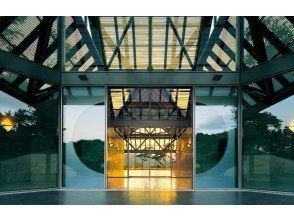
Mihide Museum Meixiu Art Museum: A haven designed by IM Pei, it displays art from ancient civilisations and is particularly captivating with its cherry blossom tunnel.
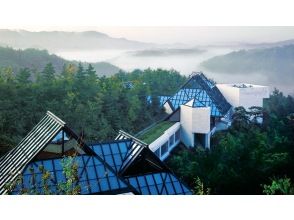
Mihide Museum Meixiu Art Museum: A haven designed by IM Pei, it displays art from ancient civilisations and is particularly captivating with its cherry blossom tunnel.
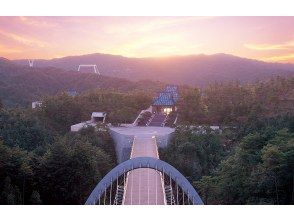
Mihide Museum Meixiu Art Museum: A haven designed by IM Pei, it displays art from ancient civilisations and is particularly captivating with its cherry blossom tunnel.
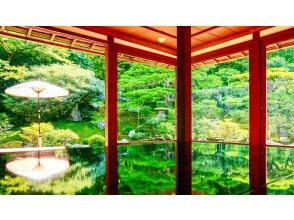
Old bamboo forest courtyard A nationally designated garden of scenic beauty where you can enjoy beautiful scenery in every season. It was once a hideaway for high priests on Mt. Hiei. Recommended by a Japanese photographer, the layout of the attic in the courtyard is the same as that of Ruriko-in Temple, so you can take the same mirror photos, and the advantage is that you won't be disturbed by anyone and there is no time limit. , you can take your time to find the perfect angle. The moss-covered courtyard exudes a sense of the four seasons. You can enjoy the scenery of the courtyard while tasting the finest matcha tea, and you can also stroll the meticulously arranged stone steps of the mountains and streams to feel Zen. Japanese garden.
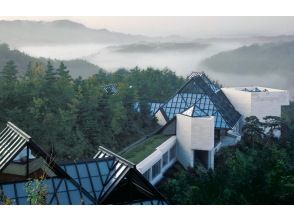
Mihide Museum Meixiu Art Museum: A haven designed by IM Pei, it displays art from ancient civilisations and is particularly captivating with its cherry blossom tunnel.
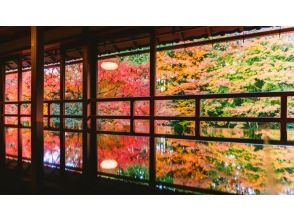
Old bamboo forest courtyard A nationally designated garden of scenic beauty where you can enjoy beautiful scenery in every season. It was once a hideaway for high priests on Mt. Hiei. Recommended by a Japanese photographer, the layout of the attic in the courtyard is the same as that of Ruriko-in Temple, so you can take the same mirror photos, and the advantage is that you won't be disturbed by anyone and there is no time limit. , you can take your time to find the perfect angle. The moss-covered courtyard exudes a sense of the four seasons. You can enjoy the scenery of the courtyard while tasting the finest matcha tea, and you can also stroll the meticulously arranged stone steps of the mountains and streams to feel Zen. Japanese garden.

Old bamboo forest courtyard A nationally designated garden of scenic beauty where you can enjoy beautiful scenery in every season. It was once a hideaway for high priests on Mt. Hiei. Recommended by a Japanese photographer, the layout of the attic in the courtyard is the same as that of Ruriko-in Temple, so you can take the same mirror photos, and the advantage is that you won't be disturbed by anyone and there is no time limit. , you can take your time to find the perfect angle. The moss-covered courtyard exudes a sense of the four seasons. You can enjoy the scenery of the courtyard while tasting the finest matcha tea, and you can also stroll the meticulously arranged stone steps of the mountains and streams to feel Zen. Japanese garden.
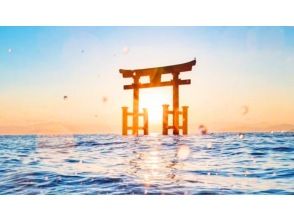
Lake Biwa Shirasu Shrine Lake Biwa is a freshwater lake in the mountains of central and western Japan near Kyoto. It is the largest lake designated as a national lake and a national park. It is included in the Ramsar Convention's list of wetlands of international importance. Lake Biwa, like Mount Fuji, is a symbol of Japan for the Japanese people and is fondly referred to as the "Lake of Life". Shirasu Shrine is the oldest shrine in Omi, founded about 1900 years ago, and is also selected as one of the components of the Japan Heritage Story. The scenery here is fascinating, with Oki Island floating on the horizon in the background and fishing boats passing between the torii gates in the lake being particularly beautiful.
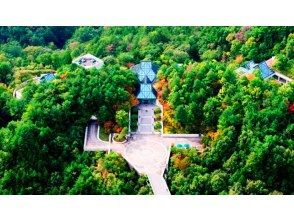
Old bamboo forest courtyard A nationally designated garden of scenic beauty where you can enjoy beautiful scenery in every season. It was once a hideaway for high priests on Mt. Hiei. Recommended by a Japanese photographer, the layout of the attic in the courtyard is the same as that of Ruriko-in Temple, so you can take the same mirror photos, and the advantage is that you won't be disturbed by anyone and there is no time limit. , you can take your time to find the perfect angle. The moss-covered courtyard exudes a sense of the four seasons. You can enjoy the scenery of the courtyard while tasting the finest matcha tea, and you can also stroll the meticulously arranged stone steps of the mountains and streams to feel Zen. Japanese garden.
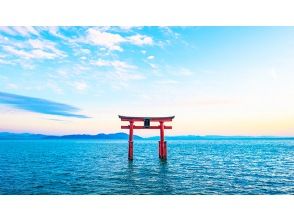
Lake Biwa Shirasu Shrine Lake Biwa is a freshwater lake in the mountains of central and western Japan near Kyoto. It is the largest lake designated as a national lake and a national park. It is included in the Ramsar Convention's list of wetlands of international importance. Lake Biwa, like Mount Fuji, is a symbol of Japan for the Japanese people and is fondly referred to as the "Lake of Life". Shirasu Shrine is the oldest shrine in Omi, founded about 1900 years ago, and is also selected as one of the components of the Japan Heritage Story. The scenery here is fascinating, with Oki Island floating on the horizon in the background and fishing boats passing between the torii gates in the lake being particularly beautiful.
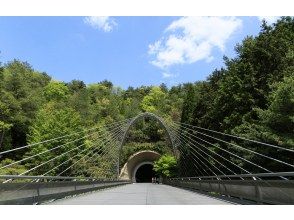
Follow the path of weeping cherry blossoms Follow the path of weeping cherry blossoms through tunnels and suspension bridges to reach the museum, a path filled with poetry and paintings inspired by Chinese poet Tao Yuanming's "Peach Blossoms in Spring."
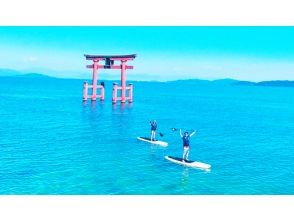
Lake Biwa Shirasu Shrine Lake Biwa is a freshwater lake in the mountains of central and western Japan near Kyoto. It is the largest lake designated as a national lake and a national park. It is included in the Ramsar Convention's list of wetlands of international importance. Lake Biwa, like Mount Fuji, is a symbol of Japan for the Japanese people and is fondly referred to as the "Lake of Life". Shirasu Shrine is the oldest shrine in Omi, founded about 1900 years ago, and is also selected as one of the components of the Japan Heritage Story. The scenery here is fascinating, with Oki Island floating on the horizon in the background and fishing boats passing between the torii gates in the lake being particularly beautiful.
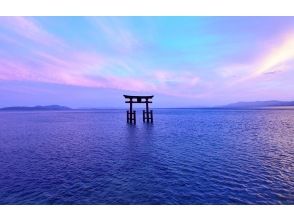
Lake Biwa Shirasu Shrine Lake Biwa is a freshwater lake in the mountains of central and western Japan near Kyoto. It is the largest lake designated as a national lake and a national park. It is included in the Ramsar Convention's list of wetlands of international importance. Lake Biwa, like Mount Fuji, is a symbol of Japan for the Japanese people and is fondly referred to as the "Lake of Life". Shirasu Shrine is the oldest shrine in Omi, founded about 1900 years ago, and is also selected as one of the components of the Japan Heritage Story. The scenery here is fascinating, with Oki Island floating on the horizon in the background and fishing boats passing between the torii gates in the lake being particularly beautiful.
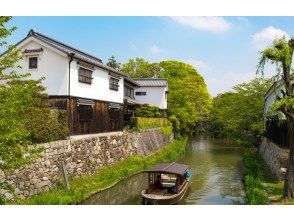
Hachimanbori Take a canal tour that combines atmosphere and history, and experience the traditional Japanese architecture that stands along the moat.
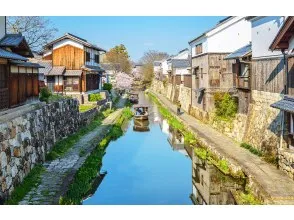
Hachimanbori Take a canal tour that combines atmosphere and history, and experience the traditional Japanese architecture that stands along the moat.
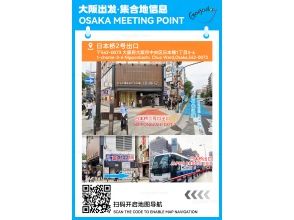
Nihonbashi Station Exit 2 (Namba-Shinsaibashi area) 〒542-0073 Osaka City, Chuo Ward, Nipponbashi 1-chome-3-6
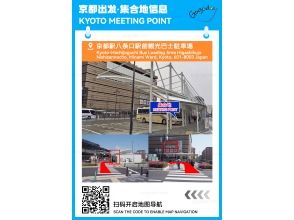
Kyoto Station Hachijo Exit Tourist Bus Parking Lot Kyoto-Hachijoguchi Bus Loading Area HigashikujoNishisannocho, Minami Ward, Kyoto, 601-8003 Japan
Time schedule
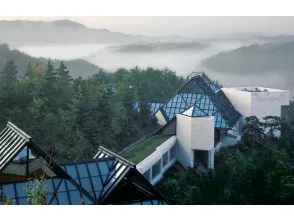
Mihide Museum Meixiu Art Museum: A haven designed by IM Pei, it displays art from ancient civilisations and is particularly captivating with its cherry blossom tunnel.
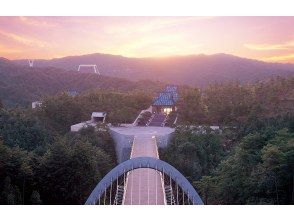
Mihide Museum Meixiu Art Museum: A haven designed by IM Pei, it displays art from ancient civilisations and is particularly captivating with its cherry blossom tunnel.
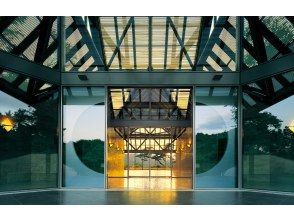
Mihide Museum Meixiu Art Museum: A haven designed by IM Pei, it displays art from ancient civilisations and is particularly captivating with its cherry blossom tunnel.
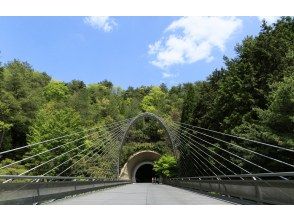
Mihide Museum Meixiu Art Museum: A haven designed by IM Pei, it displays art from ancient civilisations and is particularly captivating with its cherry blossom tunnel.
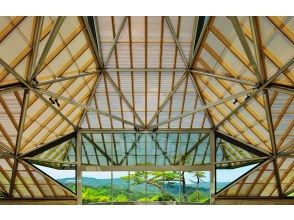
Mihide Museum Meixiu Art Museum: A haven designed by IM Pei, it displays art from ancient civilisations and is particularly captivating with its cherry blossom tunnel.
Access - Map
8:40 Nihonbashi Station Exit 2 (Namba-Shinsaibashi area) 9:50 Kyoto Station Hachijo Exit (in front of Seven-Eleven)
It is not advisable to drive yourself
We recommend using public transport to get to the meeting point.
All reviews 0Results
Q&A about this plan Ask question about this plan
Activity Provider of this plan
Selling points regarding safety
Application conditionsIf you are in poor health, use a wheelchair or other device, have a mental or physical disability, have an allergy to animals, are pregnant, or may be pregnant, or have a guide dog for the physically disabled (guide dog, hearing dog, or assistance dog), or require other special consideration, please inform us of your need for special consideration when applying. We will comply with your request to the extent possible and reasonable. In this case, you will be responsible for the costs of any special measures we take for you based on your request.
| Authorization issued by | Shizuoka Prefectural Governor Registration Travel Industry No. 2-633 |
|---|---|
| Insurance information | ANTA Liability insurance 5 million yen |
| License and Qualifications | The guide has a tour guide license. |
| Member organizations and associations | Travel Agency Registered by Shizuoka Prefecture Governor No. 2-633 JATA Japan Association of Travel Agents |
| Number of staff | 25 people |
| Number of instructors | 1 people |
![[Day trip plan] Miho Museum and Omihachiman sightseeing (with hotel pick-up and drop-off in the city)の紹介画像](https://img.activityjapan.com/10/55718/10000005571801_1dhWswak_4.jpg?version=1744171925)
![[Day trip plan] Miho Museum and Omihachiman sightseeing (with hotel pick-up and drop-off in the city)の紹介画像](https://img.activityjapan.com/11/55718/11000005571802_1dhWswak_4.jpg?version=1744171927)
![[Day trip plan] Miho Museum and Omihachiman sightseeing (with hotel pick-up and drop-off in the city)の紹介画像](https://img.activityjapan.com/11/55718/11000005571803_1dhWswak_4.jpg?version=1744171930)
![[Day trip plan] Miho Museum and Omihachiman sightseeing (with hotel pick-up and drop-off in the city)の紹介画像](https://img.activityjapan.com/11/55718/11000005571804_1dhWswak_4.jpg?version=1744171932)
![[Day trip plan] Miho Museum and Omihachiman sightseeing (with hotel pick-up and drop-off in the city)の紹介画像](https://img.activityjapan.com/11/55718/11000005571805_P3BiVCAd_4.jpg?version=1744171935)
![[Day trip plan] Miho Museum and Omihachiman sightseeing (with hotel pick-up and drop-off in the city)の紹介画像](https://img.activityjapan.com/11/55718/11000005571806_P3BiVCAd_4.jpg?version=1744171938)
![[Day trip plan] Miho Museum and Omihachiman sightseeing (with hotel pick-up and drop-off in the city)の紹介画像](https://img.activityjapan.com/11/55718/11000005571807_P3BiVCAd_4.jpg?version=1744171941)
![[Day trip plan] Miho Museum and Omihachiman sightseeing (with hotel pick-up and drop-off in the city)の紹介画像](https://img.activityjapan.com/11/55718/11000005571808_P3BiVCAd_4.jpg?version=1744171944)
![[Day trip plan] Miho Museum and Omihachiman sightseeing (with hotel pick-up and drop-off in the city)の紹介画像](https://img.activityjapan.com/11/55718/11000005571809_P3BiVCAd_4.jpg?version=1744171947)
![[Day trip plan] Miho Museum and Omihachiman sightseeing (with hotel pick-up and drop-off in the city)の紹介画像](https://img.activityjapan.com/11/55718/11000005571810_P3BiVCAd_4.jpg?version=1744171950)
![[Day trip plan] Miho Museum and Omihachiman sightseeing (with hotel pick-up and drop-off in the city)の紹介画像](https://img.activityjapan.com/11/55718/11000005571811_P3BiVCAd_4.jpg?version=1744171953)
![[Day trip plan] Miho Museum and Omihachiman sightseeing (with hotel pick-up and drop-off in the city)の紹介画像](https://img.activityjapan.com/11/55718/11000005571812_P3BiVCAd_4.jpg?version=1744171955)
![[Day trip plan] Miho Museum and Omihachiman sightseeing (with hotel pick-up and drop-off in the city)の紹介画像](https://img.activityjapan.com/11/55718/11000005571813_P3BiVCAd_4.jpg?version=1744171959)
![[Day trip plan] Miho Museum and Omihachiman sightseeing (with hotel pick-up and drop-off in the city)の紹介画像](https://img.activityjapan.com/11/55718/11000005571814_P3BiVCAd_4.jpg?version=1744171962)
![[Day trip plan] Miho Museum and Omihachiman sightseeing (with hotel pick-up and drop-off in the city)の紹介画像](https://img.activityjapan.com/11/55718/11000005571815_P3BiVCAd_4.jpg?version=1744171965)
![[Day trip plan] Miho Museum and Omihachiman sightseeing (with hotel pick-up and drop-off in the city)の紹介画像](https://img.activityjapan.com/11/55718/11000005571816_P3BiVCAd_4.jpg?version=1744171967)
![[Day trip plan] Miho Museum and Omihachiman sightseeing (with hotel pick-up and drop-off in the city)の紹介画像](https://img.activityjapan.com/11/55718/11000005571817_P3BiVCAd_4.jpg?version=1744171969)
![[Day trip plan] Miho Museum and Omihachiman sightseeing (with hotel pick-up and drop-off in the city)の紹介画像](https://img.activityjapan.com/11/55718/11000005571818_P3BiVCAd_4.jpg?version=1744171972)
![[Day trip plan] Miho Museum and Omihachiman sightseeing (with hotel pick-up and drop-off in the city)の紹介画像](https://img.activityjapan.com/11/55718/11000005571819_P3BiVCAd_4.jpg?version=1744171974)
![[Day trip plan] Miho Museum and Omihachiman sightseeing (with hotel pick-up and drop-off in the city)の紹介画像](https://img.activityjapan.com/11/55718/11000005571820_P3BiVCAd_4.png?version=1744171983)
![[Kobe day trip with transfer] A luxurious plan that includes the three most popular attractions: Arima's famous hot springs, shopping, and the million-dollar night view of Mt. Rokko](https://img.activityjapan.com/10/55492/10000005549201_P3BiVCAd_2.jpg?version=1744699982)
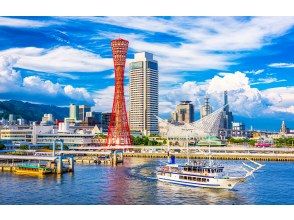
![[Day trip] Kobe night view, Kobe Port Skyscraper Ferris Wheel, Kitano Foreigners' House District, Arima Onsen, Mt. Rokko night view](https://img.activityjapan.com/10/55503/10000005550301_P3BiVCAd_2.jpg?version=1744705983)
![[Day trip] Kyoto, Amanohashidate, Ine Funaya, Miyama Thatched House plan (with hotel pick-up in Osaka city)](https://img.activityjapan.com/10/56281/10000005628101_KGckTMmm_2.jpg?version=1730786645)
![[Kyushu, Oita] Yufuin | Lake Kinrin | Kyushu Natural Zoo | Sea Hell | Hearth Hell Day Tour](https://img.activityjapan.com/10/56283/10000005628301_1dhWswak_2.jpg?version=1744773546)
![[Kyushu-Kumamoto] Kamishiromi Kumanoimasu Shrine | Takamori Senbonzakura | Amano Iwato Shrine | Tenan Riverside | Takachiho Gorge Day Trip (Departing from Fukuoka)](https://img.activityjapan.com/10/56297/10000005629701_1dhWswak_2.jpg?version=1744774803)
![[Kumamoto Castle] Aso Volcano Senri | Aso Boy Sightseeing Train Experience Day Tour | Departing from Fukuoka | Departing from Kumamoto](https://img.activityjapan.com/10/56300/10000005630001_P3BiVCAd_2.jpg?version=1730966223)
![[Day trip] Awaji Island and Naruto sightseeing plan (with city hotel pick-up and drop-off)](https://img.activityjapan.com/10/55719/10000005571901_1dhWswak_2.jpg?version=1744856222)
![[Day trip] Kyoto city hotel pick-up and drop-off included. Japanese-style Kyoto sightseeing tour, Kinkaku-ji Temple - Kiyomizu-dera Temple - Fushimi Inari Taisha Shrine. Passing through the 1,000 torii gates.](https://img.activityjapan.com/10/55487/10000005548701_P3BiVCAd_2.jpg?version=1733822342)
![[Kyoto day trip with transfer included] A plan to visit two of Kyoto's great attractions: Arashiyama's spectacular trolley ride and Kokedera Sanzenin Temple](https://img.activityjapan.com/10/55488/10000005548801_P3BiVCAd_2.jpg?version=1744016286)
![[Shiga / Lake Biwa] SUNSET on SUP](https://img.activityjapan.com/10/37633/10000003763301_jjOY3qw6_2.jpg?version=1753420264)
![[Shiga / Lake Biwa] Let's SUP cruise empty-handed!](https://img.activityjapan.com/10/27329/10000002732901_DXiIFdK6_2.jpg?version=1748236982)
![[Shiga/Lake Biwa] Park night sky yoga](https://img.activityjapan.com/10/47225/10000004722501_DXiIFdK6_2.jpg?version=1743498182)
![[Shiga / Lake Biwa] Let's do SUP Yoga empty-handed on Lake Biwa! !!](https://img.activityjapan.com/10/27326/10000002732601_DXiIFdK6_2.jpg?version=1748236863)
![[Shiga / Lake Biwa] Poolside starry sky YOGA!](https://img.activityjapan.com/10/27333/10000002733301_DXiIFdK6_2.jpg?version=1749105241)
![★Limited to Wednesday, March 11, 2026★ [Shiga, Lake Biwa] FUNG SIU KEI Shade Yoga](https://img.activityjapan.com/10/62272/10000006227201_niGzyWSR_2.jpg?version=1768359125)
![[Shiga / Lake Biwa] SUP Cruise to Learn About Lake Biwa](https://img.activityjapan.com/10/47226/10000004722601_yRcpJ7JS_2.jpg?version=1748237162)
![[Shiga Canyoning] For first timers, this is the place to go! Good balance between price and content! Myo-o Valley (half day)](https://img.activityjapan.com/10/8007/10000000800701_Zy6tH1j7_2.jpg?version=1756516262)